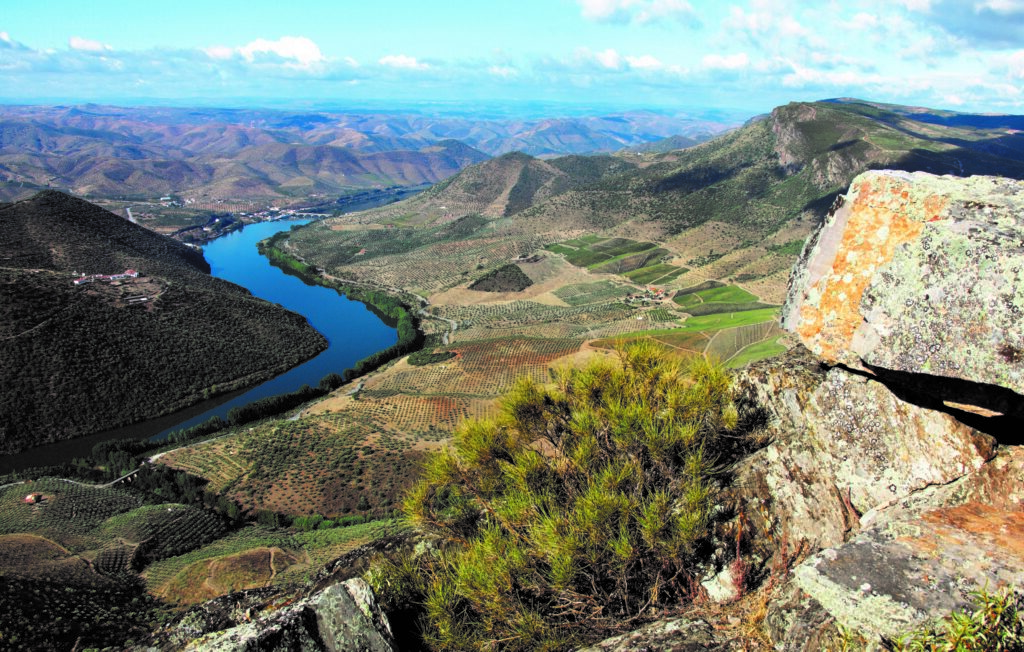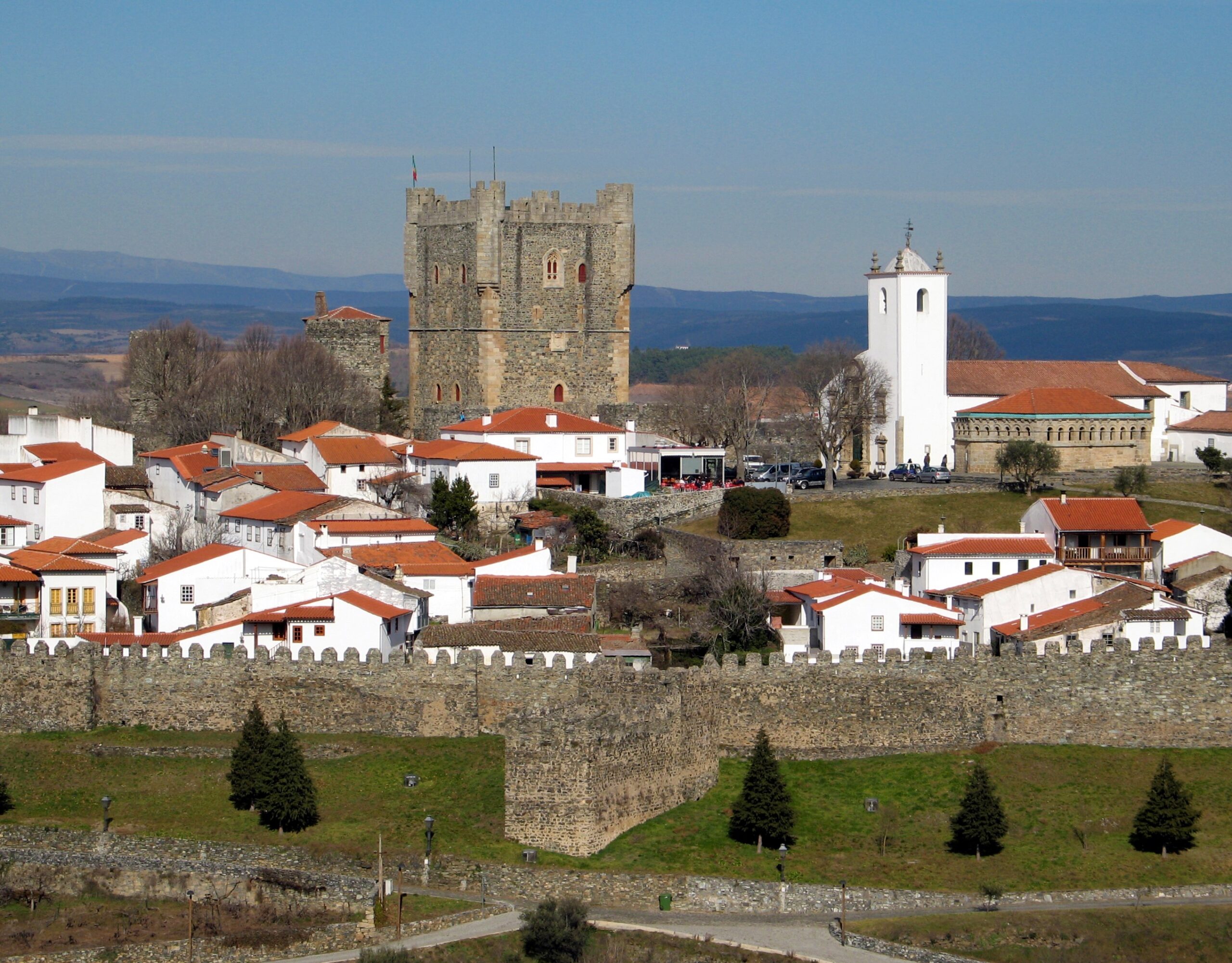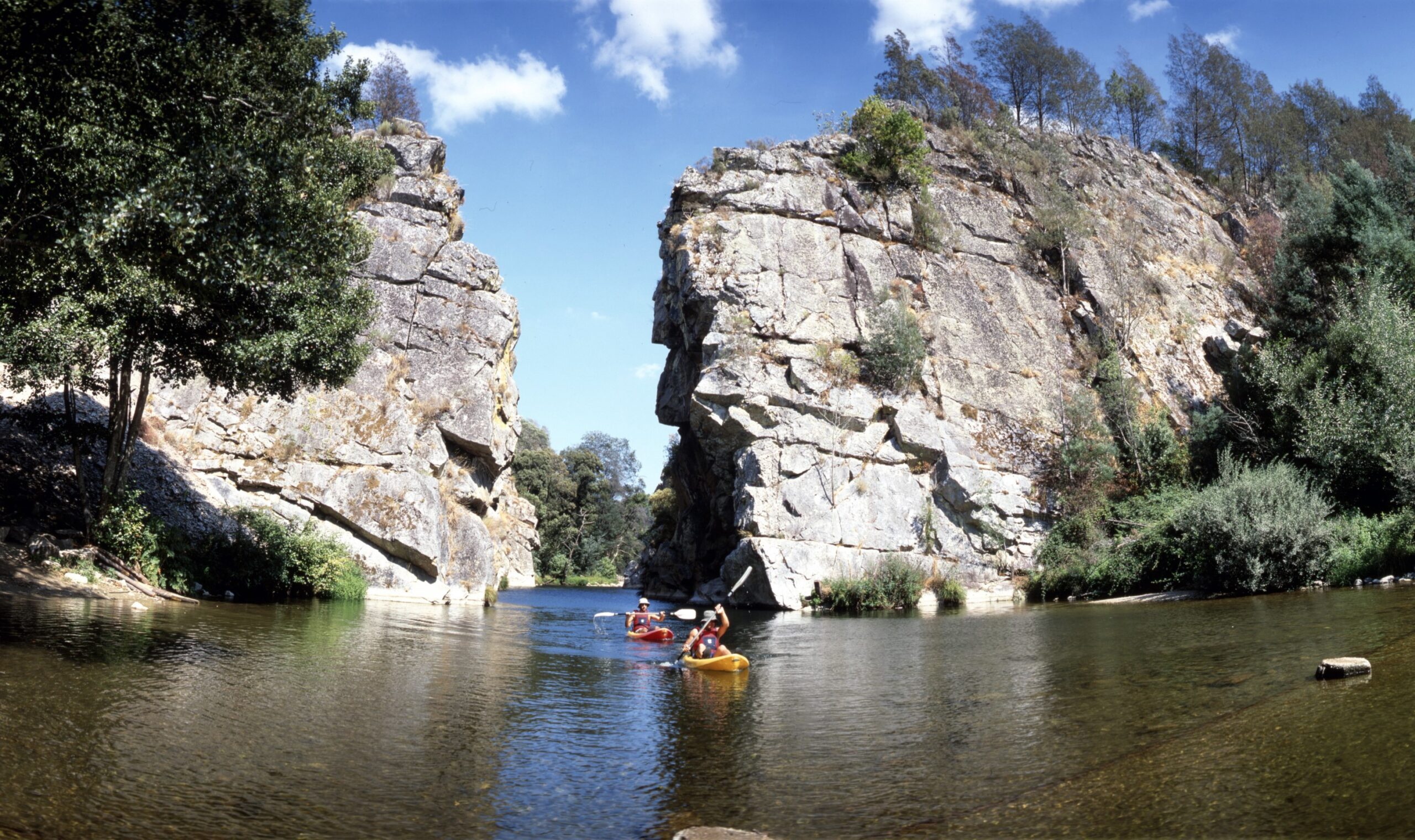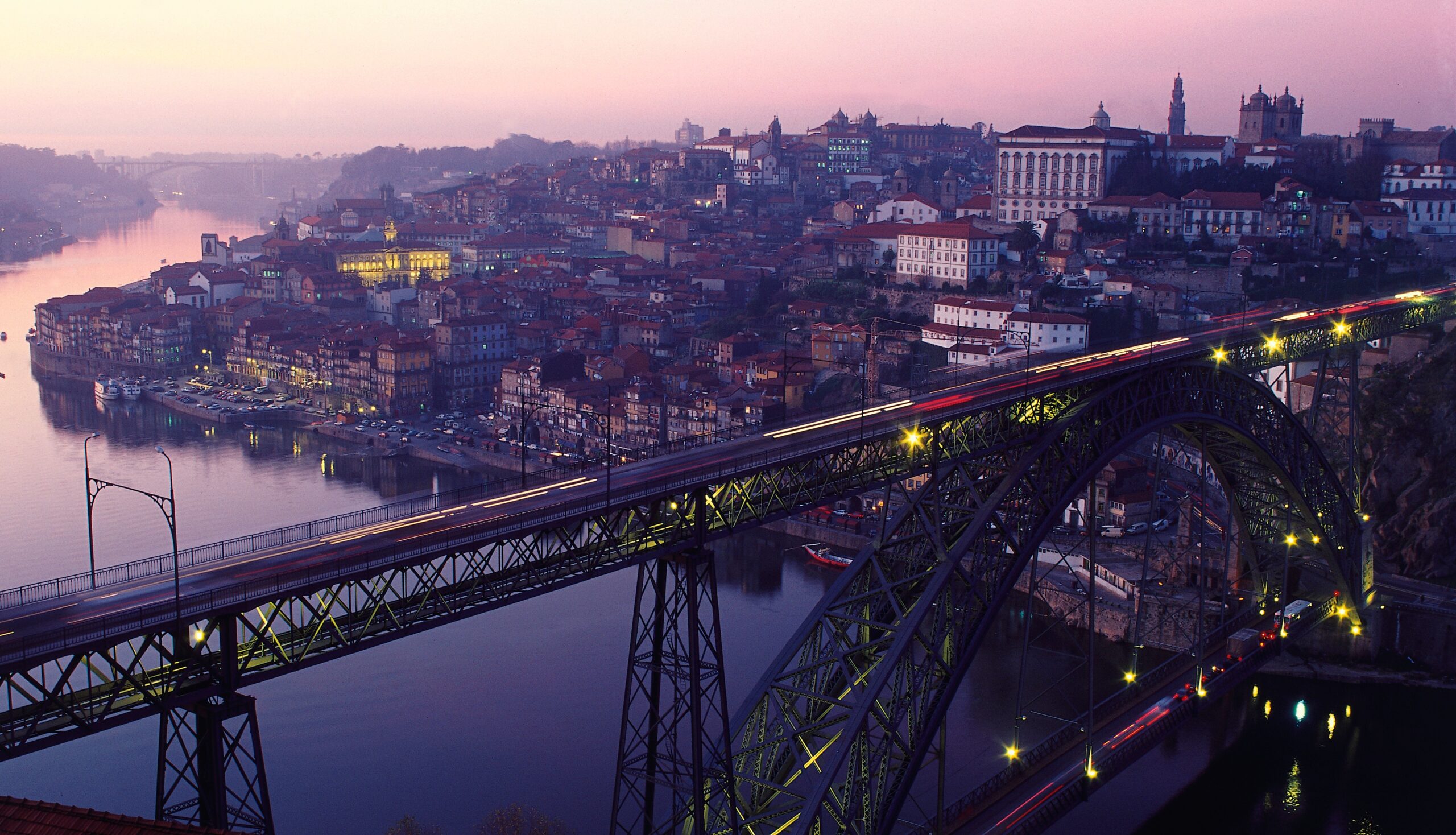Baja California
Cape Verde
Costa Rica
Cuba
Faroe Islands
Porto and Peneda Geres
The Tras-os-Montes region sits between the natural river borders of the Douro and Tamega, and is famous for its fabulous regional wines, olive oil and honey…
Discover the beautiful river valleys of the Tras-os-Montes on our fourteen-night holiday to Porto and Peneda Geres.

Your holiday begins in the historic city of Guimaraes, birthplace of the Portuguese nation, where you’ll get acquainted with the historic plazas and traditional architecture of this UNESCO-protected medieval city.

Next, you’ll head north into the Tras-os-Montes region of Portugal, which sits between the natural river borders of the Douro and Tamega and is renowned for its fabulous regional wines, olive oil and honey. Your home is the Peneda Geres National Park – if you enjoy hiking and kayaking, Peneda Geres is a playground with its granite mountains and rugged rivers valleys.

You’ll end your stay in Portugal’s bustling second city Porto. It’s a nice contrast to your time in rural Geres – the city’s brightly coloured architecture, rickety wooden trams, riverside restaurants and port lodges make for a memorable end to a great holiday.

Day 1
Fly direct from the UK to Porto. You’ll collect a hire car on arrival before driving to your accommodation: the Pousada Mosteiro Guimaraes in the historic city of Guimaraes.
Day 2
You’ll have today free to explore Guimaraes, the Palace of the Dukes of Braganza and the Castelo de Guimaraes: the 10th century medieval castle and treasured national symbol of Portugal.
Day 3
You’ll take the teleferico cable car up to the summit of Montanha da Penha overlooking the Serra da Penha. The summit Parque is a great spot for a picnic, with a number of interesting chapels and monuments.
Day 4
You might like to explore the old Roman city of Braga – the Praca da Republica, the Thermae Maximinus baths and the Bom Jesus do Monte. monument and popular pilgrimage site.
Day 5
You’ll take a tour of the vineyards at Casa de Sezim. The Entre-Douro-e-Minho region of Portugal (between the Douro and Minho rivers) is the home of Vinho Verde – a light, young wine popular across Portugal for it’s fresh, floral flavour.
Day 6
You’ll leave Guimaraes today, driving north to your new accommodation – the Pousada Canicada Geres overlooking the Peneda Geres National Park.
The park is a protected habitat for Portugal’s Golden Eagle population and the endangered Iberian Wolf. It’s also great place for outdoor activities like biking, kayaking and canyoning.
Day 7
You’ll head out onto the the calm waters of the Canicada reservoir on either paddleboards or kayaks (just let us now your preference). In the afternoon, you might like to take a drive to the Miradouro de Fafiao, ending the day with swim beneath the waterfall at the Cascatas de Fecha de Barjas.
Day 8
You’ll take a drive up to the Miradouro da Pedra Bela – a beautiful viewpoint (at 829m) which looks down the full length of the Cavado river valley. From here, it’s a ten-minute drive and a short walk to the Casata do Arado waterfall on the Rio Arado river.
Day 9
You’ll take a guided walk along trails dating back to medieval times, through an ancient landscape of gorse, heather, grass and granite, surrounded by magnificent views of the Amarela mountain rangs.
Day 10
You might like to drive up the mountain pass to the town of Geres itself for a swim in the Caldas do Geres Thermal Baths, followed by a visit to the Portela do Homem waterfall on the Portuguese/Spanish border.
Day 11
You’ll leave the Peneda Geres today, driving into Porto for your four-night stay at the Porto River Aparthotel.
Day 12
You’ll have a free day to explore Porto on foot, with visits to the Sé Cathedra, the Sao Bento train station, the Praca da Liberdade, the Lello bookshop and the Clerigos Tower. In the afternoon, you could cross Porto’s most famous landmark, the Ponte de Dom Luis I Bridge, to the port house district where you can learn more about Porto’s most famous export.
Day 13
You’ll spend today on a tour of Douro Valley, where wine has been produced for over 2,000 years, with visits to the Quinta do Portal estate, the riverside town of Pinhao and Quinta do Bomfim.
Day 14
You’ll have a free day to explore – you might like to head downriver to Foz do Douro, via the Avenida da Boavista. In the afternoon, you could explore the university district – home to Porto’s contemporary art scene.
Day 15
You’ll be transferred to the airport for your flight home.
City Tours
A guided tour can be an incredibly useful introduction the layout, cuisine and culture of an unfamiliar city. Our friendly and engaging guides bring the country’s long history to life, whilst giving you an insight into daily life in modern-day Portugal.
Tours often provide you with a list of new sights to see, restaurant recommendations, and an invaluable insight into the dos and don’ts of Portuguese etiquette. You’re also supporting the local economy, local businesses, museums and galleries, and your money helps to preserve many of Portugal’s most-historic buildings.
Hiking
Portugal’s wonderfully diverse range of landscapes make it the ideal destination for hiking holidays. The granite mountains of the Serra da Estrela are Portugal’s highest range (peaking at 1993 metres), and its high plateaus and deep river valleys are home to over 400km of waymarked trails and a wealth of wildlife: boars, otters, golden eagles, peregrine falcons and the elusive Iberian wolf.
Moving south, the Aldeias do Xisto Schist Villages are a collection of timeless, fairy tale hamlets spread across the peaks of Lousa, Acor and Muradal. Centuries of Portuguese history and tradition are preserved in the region’s hearty cuisine and its convivial B&Bs.
The jewel in the crown of Portugal’s walking network is the Rota Vicentina. This cross-region trail network was created in 2012 to help boost the local economies of southern Alentejo and the Algarve – its routes are easily adaptable according to the distance and type of hikes you enjoy, traversing remote cliffs and obscure beaches, with the wild Atlantic Ocean as a backdrop.
Food and Wine
Portuguese cuisine has experienced something of a renaissance in recent times. Once sidelined in favour of more well-known dishes from neighbouring Spain, Portugal’s locally sourced produce and regional wines have moved out of their Iberian neighbour’s shadow to take their rightful seat at the top table of European cuisine.
The capital Lisbon is where many of the country’s long-held culinary traditions are being challenged by a new generation of chefs, whose exciting and imaginative reinventions of classics such as caldo verde, ameijoas a bulhao pato and bolinhos de bacalhau are allowing the best of the country’s sensational produce to shine. Iberian pork is much-coveted, particularly in the Central and Alentejo regions whose farming heritage give its cuisine rustic, hearty slant. Its organic credentials are impeccable: roaming ancient cork forests and subsisting on a diet of acorns which impart a strong, nutty flavour to the meat.
As the western outpost of mainland Europe and with over 900km of coastline, seafood is the backbone of the country’s cuisine. Grilled sardines (sardinhas assadas) are deeply embedded in Portuguese culture and are often central to many religious celebrations, particularly around the Tejo River basin.
There are also thirty-one Denominacao de Origem Controlada regions across the country, producing over two-hundred varieties of wine. Dao, Estremadura, Bairrada, Portimao, Tavira – Portuguese vineyards are low yield and exports don’t compare to France or Italy, and to truly enjoy these wines, you have to be in Portugal.
Guided Tours
Taking on a whole new region of Portugal can be a daunting prospect: studying guidebooks and maps, researching must-see sites and trying to miss those lesser-known hidden gems. Our tours remove the stress of planning and optimise your time, without you feeling rushed or hurried. Our guides will always have a plan, but we prefer private, flexible tours where you’re not tied to a strict timetable.
If you’d like to get your hands dirty in Tras-os-Montes vineyards, with time to savour a glass of local Vino Verde, so be it. If you want to combine out-of-the-way family-run vineyards with the timeless grandeur of medieval Marvao, let us make the arrangements.
Our guides are a treasure trove of local knowledge, and their in-depth insight and passion will unveil Portugal’s extraordinary history, culture and cuisine.
Cycling
From the ancient vineyards of the Douro valley, via the windswept Alentejo plains and down to the seaside towns of the Algarve. The beauty of exploring Portugal on two wheels is in its slowness – unhurried travel allows you to immerse yourself in your surroundings and to explore the country’s rich cultural heritage and unique traditions.
Whether you’re looking for a self-guided, point-to-point cycle touring holiday, a couple of guided road rides during your family holiday, or if you prefer to be off-road, riding natural and man-made singletrack – whatever your preference, we have the bikes, routes and rides to suit all abilities.
Kayaking, SUPs and Surfing
Portugal offers an exciting range of water sports to suit every adventurer: from paddleboarding, kayaking and canoeing, to world-class surfing, kitesurfing and windsurfing,
Northern Portugal is home to many of the best spots for inland water sports – kayaking, canoeing and canyoning are popular thanks to an abundance of lakes, lagoons and waterfalls, and the UNESCO-protected Arouca Geopark is considered one of the best locations in the country for white water rafting. For a more tranquil experience, the calm waters of the Castelo de Bode reservoir are ideal for paddle-boarding, whilst the Aguieira reservoir is a popular destination for sailing and fresh-water fishing.
For would-be adrenalin junkies, the surf schools at Espinho are perfect for surfing newbies. If you’re a seasoned pro, Nazare and Peniche are blessed with year-around consistent swells and a vibrant surf culture. With its exposed location on the far southwestern tip of the Algarve, Sagres has been a mecca for water sports enthusiasts for over fifty years. Its energetic waves and laid-back atmosphere attract old-school surfers and kiteboarders from across the world.
Discover the beautiful river valleys of the Tras-os-Montes on our fourteen-night holiday to Porto and Peneda Geres.

Your holiday begins in the historic city of Guimaraes, birthplace of the Portuguese nation, where you’ll get acquainted with the historic plazas and traditional architecture of this UNESCO-protected medieval city.

Next, you’ll head north into the Tras-os-Montes region of Portugal, which sits between the natural river borders of the Douro and Tamega and is renowned for its fabulous regional wines, olive oil and honey. Your home is the Peneda Geres National Park – if you enjoy hiking and kayaking, Peneda Geres is a playground with its granite mountains and rugged rivers valleys.

You’ll end your stay in Portugal’s bustling second city Porto. It’s a nice contrast to your time in rural Geres – the city’s brightly coloured architecture, rickety wooden trams, riverside restaurants and port lodges make for a memorable end to a great holiday.

Day 1
Fly direct from the UK to Porto. You’ll collect a hire car on arrival before driving to your accommodation: the Pousada Mosteiro Guimaraes in the historic city of Guimaraes.
Day 2
You’ll have today free to explore Guimaraes, the Palace of the Dukes of Braganza and the Castelo de Guimaraes: the 10th century medieval castle and treasured national symbol of Portugal.
Day 3
You’ll take the teleferico cable car up to the summit of Montanha da Penha overlooking the Serra da Penha. The summit Parque is a great spot for a picnic, with a number of interesting chapels and monuments.
Day 4
You might like to explore the old Roman city of Braga – the Praca da Republica, the Thermae Maximinus baths and the Bom Jesus do Monte. monument and popular pilgrimage site.
Day 5
You’ll take a tour of the vineyards at Casa de Sezim. The Entre-Douro-e-Minho region of Portugal (between the Douro and Minho rivers) is the home of Vinho Verde – a light, young wine popular across Portugal for it’s fresh, floral flavour.
Day 6
You’ll leave Guimaraes today, driving north to your new accommodation – the Pousada Canicada Geres overlooking the Peneda Geres National Park.
The park is a protected habitat for Portugal’s Golden Eagle population and the endangered Iberian Wolf. It’s also great place for outdoor activities like biking, kayaking and canyoning.
Day 7
You’ll head out onto the the calm waters of the Canicada reservoir on either paddleboards or kayaks (just let us now your preference). In the afternoon, you might like to take a drive to the Miradouro de Fafiao, ending the day with swim beneath the waterfall at the Cascatas de Fecha de Barjas.
Day 8
You’ll take a drive up to the Miradouro da Pedra Bela – a beautiful viewpoint (at 829m) which looks down the full length of the Cavado river valley. From here, it’s a ten-minute drive and a short walk to the Casata do Arado waterfall on the Rio Arado river.
Day 9
You’ll take a guided walk along trails dating back to medieval times, through an ancient landscape of gorse, heather, grass and granite, surrounded by magnificent views of the Amarela mountain rangs.
Day 10
You might like to drive up the mountain pass to the town of Geres itself for a swim in the Caldas do Geres Thermal Baths, followed by a visit to the Portela do Homem waterfall on the Portuguese/Spanish border.
Day 11
You’ll leave the Peneda Geres today, driving into Porto for your four-night stay at the Porto River Aparthotel.
Day 12
You’ll have a free day to explore Porto on foot, with visits to the Sé Cathedra, the Sao Bento train station, the Praca da Liberdade, the Lello bookshop and the Clerigos Tower. In the afternoon, you could cross Porto’s most famous landmark, the Ponte de Dom Luis I Bridge, to the port house district where you can learn more about Porto’s most famous export.
Day 13
You’ll spend today on a tour of Douro Valley, where wine has been produced for over 2,000 years, with visits to the Quinta do Portal estate, the riverside town of Pinhao and Quinta do Bomfim.
Day 14
You’ll have a free day to explore – you might like to head downriver to Foz do Douro, via the Avenida da Boavista. In the afternoon, you could explore the university district – home to Porto’s contemporary art scene.
Day 15
You’ll be transferred to the airport for your flight home.
City Tours
A guided tour can be an incredibly useful introduction the layout, cuisine and culture of an unfamiliar city. Our friendly and engaging guides bring the country’s long history to life, whilst giving you an insight into daily life in modern-day Portugal.
Tours often provide you with a list of new sights to see, restaurant recommendations, and an invaluable insight into the dos and don’ts of Portuguese etiquette. You’re also supporting the local economy, local businesses, museums and galleries, and your money helps to preserve many of Portugal’s most-historic buildings.
Hiking
Portugal’s wonderfully diverse range of landscapes make it the ideal destination for hiking holidays. The granite mountains of the Serra da Estrela are Portugal’s highest range (peaking at 1993 metres), and its high plateaus and deep river valleys are home to over 400km of waymarked trails and a wealth of wildlife: boars, otters, golden eagles, peregrine falcons and the elusive Iberian wolf.
Moving south, the Aldeias do Xisto Schist Villages are a collection of timeless, fairy tale hamlets spread across the peaks of Lousa, Acor and Muradal. Centuries of Portuguese history and tradition are preserved in the region’s hearty cuisine and its convivial B&Bs.
The jewel in the crown of Portugal’s walking network is the Rota Vicentina. This cross-region trail network was created in 2012 to help boost the local economies of southern Alentejo and the Algarve – its routes are easily adaptable according to the distance and type of hikes you enjoy, traversing remote cliffs and obscure beaches, with the wild Atlantic Ocean as a backdrop.
Food and Wine
Portuguese cuisine has experienced something of a renaissance in recent times. Once sidelined in favour of more well-known dishes from neighbouring Spain, Portugal’s locally sourced produce and regional wines have moved out of their Iberian neighbour’s shadow to take their rightful seat at the top table of European cuisine.
The capital Lisbon is where many of the country’s long-held culinary traditions are being challenged by a new generation of chefs, whose exciting and imaginative reinventions of classics such as caldo verde, ameijoas a bulhao pato and bolinhos de bacalhau are allowing the best of the country’s sensational produce to shine. Iberian pork is much-coveted, particularly in the Central and Alentejo regions whose farming heritage give its cuisine rustic, hearty slant. Its organic credentials are impeccable: roaming ancient cork forests and subsisting on a diet of acorns which impart a strong, nutty flavour to the meat.
As the western outpost of mainland Europe and with over 900km of coastline, seafood is the backbone of the country’s cuisine. Grilled sardines (sardinhas assadas) are deeply embedded in Portuguese culture and are often central to many religious celebrations, particularly around the Tejo River basin.
There are also thirty-one Denominacao de Origem Controlada regions across the country, producing over two-hundred varieties of wine. Dao, Estremadura, Bairrada, Portimao, Tavira – Portuguese vineyards are low yield and exports don’t compare to France or Italy, and to truly enjoy these wines, you have to be in Portugal.
Guided Tours
Taking on a whole new region of Portugal can be a daunting prospect: studying guidebooks and maps, researching must-see sites and trying to miss those lesser-known hidden gems. Our tours remove the stress of planning and optimise your time, without you feeling rushed or hurried. Our guides will always have a plan, but we prefer private, flexible tours where you’re not tied to a strict timetable.
If you’d like to get your hands dirty in Tras-os-Montes vineyards, with time to savour a glass of local Vino Verde, so be it. If you want to combine out-of-the-way family-run vineyards with the timeless grandeur of medieval Marvao, let us make the arrangements.
Our guides are a treasure trove of local knowledge, and their in-depth insight and passion will unveil Portugal’s extraordinary history, culture and cuisine.
Cycling
From the ancient vineyards of the Douro valley, via the windswept Alentejo plains and down to the seaside towns of the Algarve. The beauty of exploring Portugal on two wheels is in its slowness – unhurried travel allows you to immerse yourself in your surroundings and to explore the country’s rich cultural heritage and unique traditions.
Whether you’re looking for a self-guided, point-to-point cycle touring holiday, a couple of guided road rides during your family holiday, or if you prefer to be off-road, riding natural and man-made singletrack – whatever your preference, we have the bikes, routes and rides to suit all abilities.
Kayaking, SUPs and Surfing
Portugal offers an exciting range of water sports to suit every adventurer: from paddleboarding, kayaking and canoeing, to world-class surfing, kitesurfing and windsurfing,
Northern Portugal is home to many of the best spots for inland water sports – kayaking, canoeing and canyoning are popular thanks to an abundance of lakes, lagoons and waterfalls, and the UNESCO-protected Arouca Geopark is considered one of the best locations in the country for white water rafting. For a more tranquil experience, the calm waters of the Castelo de Bode reservoir are ideal for paddle-boarding, whilst the Aguieira reservoir is a popular destination for sailing and fresh-water fishing.
For would-be adrenalin junkies, the surf schools at Espinho are perfect for surfing newbies. If you’re a seasoned pro, Nazare and Peniche are blessed with year-around consistent swells and a vibrant surf culture. With its exposed location on the far southwestern tip of the Algarve, Sagres has been a mecca for water sports enthusiasts for over fifty years. Its energetic waves and laid-back atmosphere attract old-school surfers and kiteboarders from across the world.

